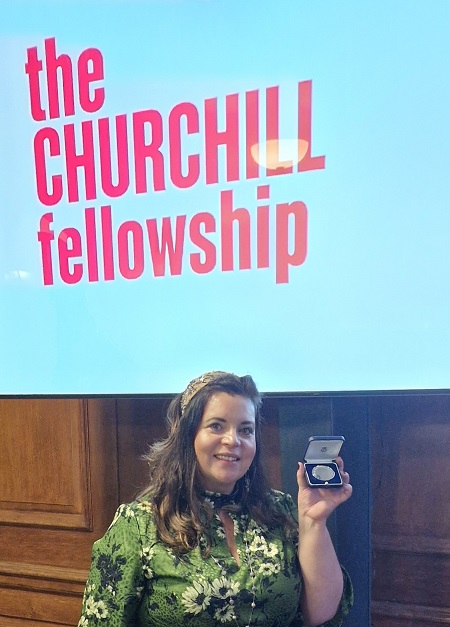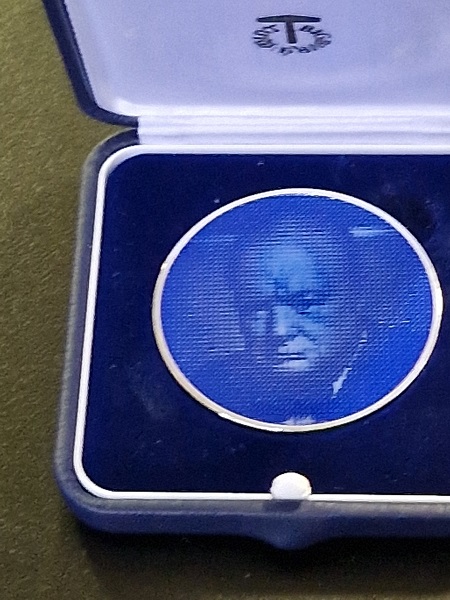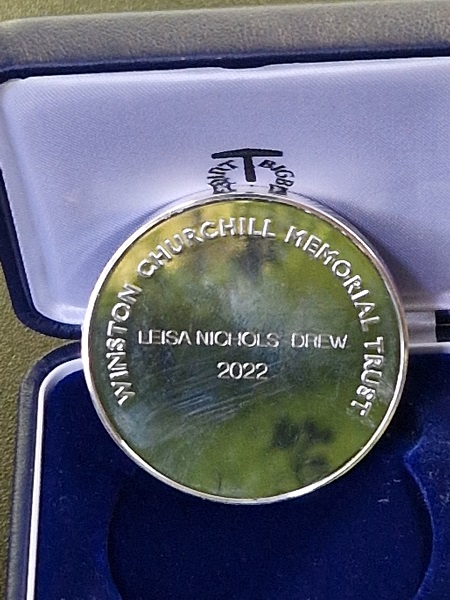A DMU academic who was awarded a prestigious fellowship is encouraging colleagues to apply for this year’s awards, saying the accolade her “changed her life.”

Forensic scientist Leisa Nichols-Drew was awarded a Churchill Fellowship in 2018 which funded research in Australia and Canada into knife crime. Leisa attended her award ceremony recently in London to receive her Churchill Fellowship medal, which entitles her to use the post-nominals CF.
The Fellowship was pivotal in Leisa using her casework background involving knife crime investigations to undertake innovative research into round-tip blades which has seen her win subsequent awards, gain national media attention and be invited to write a DMU UN policy brief.
Leisa spoke as applications for the 2023 Churchill Fellowships went live with a deadline of November 22nd at 5pm.
“It really is life changing,” said Leisa. “If it had not been for getting the Churchill Fellowship I never would have applied to be a National Teacher Fellow, be recognised as a Chartered Forensic Practitioner or publishing my first research paper. It is such a brilliant opportunity where the charity has the ethos: travel to learn, return to inspire.

Every year, over 1,200 people apply for a Churchill Fellowship, with around 300 people shortlisted for interview, for 150 Fellowships which cover numerous themes.
Leisa pitched the idea of visiting Canada and Australia to study how their countries were affected by knife crime and investigate the effectiveness of campaigns to tackle the problem.
“As forensic scientists, you are always involved after the event, in the detection of crime, but this showed me that we have a role to play in crime preventio too. I was discussing knife examinations with a colleague in a cold-case unit in Australia when we realised that changing the shape of the knives themselves from sharp pointed-tip blades to rounded ends could actually have a significant effect in reducing stabbing incidents injuries.”
Following her visit, Leisa worked with DMU’s Dr Rachel Armitage and Dr Kevin Farrugia, University of Leicester’s Professor Robert Hillman and Northumbria University’s Dr Kelly Sheridan, to carry out ‘stab tests’ on different clothing to show how changing the design of a knife could reduce clothing damage and potential subsequent injuries.

As part of the research, Leisa has liaised with manufacturers and retailers, discussed it on BBC Crimewatch, via a DMU Women Ted X Talk, at national and international conferences and involved organisations such as the Metropolitan Police, and National Knife Crime Working Group.
In 2021, Leisa and the research team was awarded the Excellence in Collaboration award at the East Midlands Chamber business awards.
Posted on Monday 14 November 2022